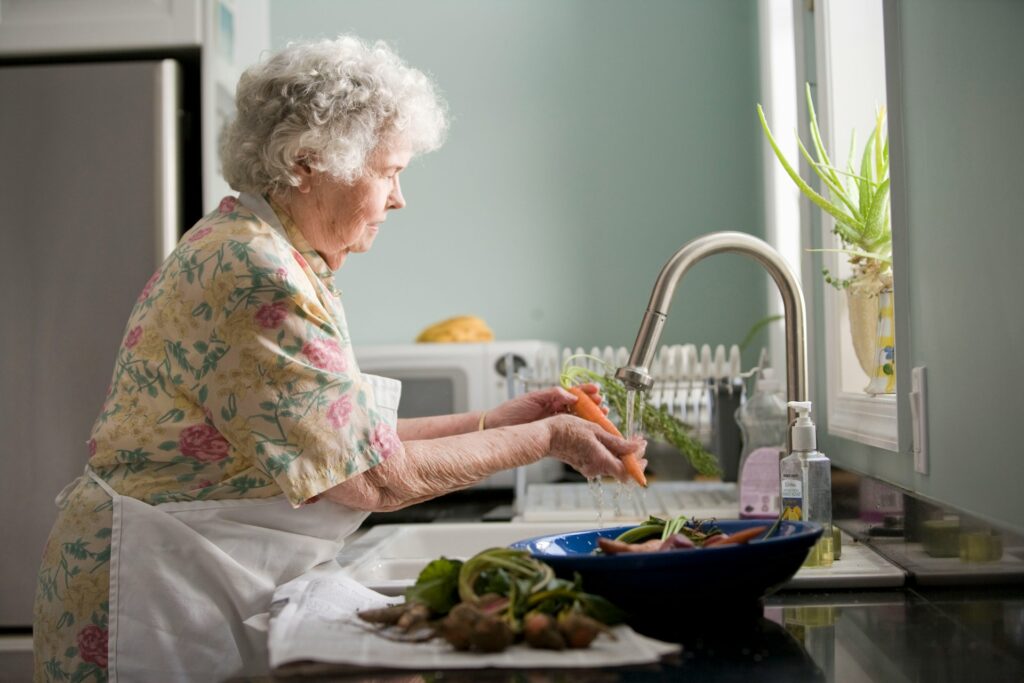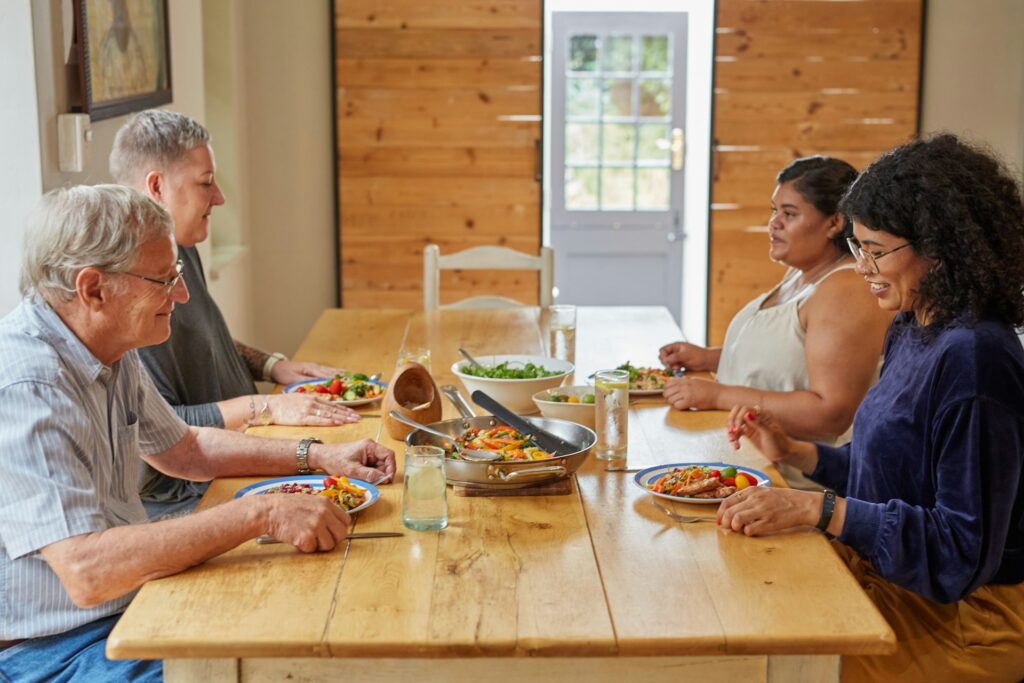The first proper cold snap of winter is nearly upon us, with sub zero temperatures apparently on the way. As we bundle up in extra layers and crank up the heating, it’s worth remembering that these challenging conditions affect some members of our community far more profoundly than others. For our elderly loved ones in particular, winter brings a unique set of challenges that extend far beyond just staying warm.
Perhaps you’ve noticed your previously independent mother becoming more hesitant about venturing to the shops in icy conditions. Maybe your father, once the family chef, now seems to subsist mainly on tea and toast. These changes aren’t merely matters of preference – they’re often signs of how winter can create a perfect storm of circumstances that make maintaining good nutrition increasingly difficult for older people.
Winter presents multiple barriers to good nutrition for older adults. The cold weather can make joints stiffer and more painful, affecting dexterity and cooking abilities. Darker days can impact mood and appetite. Even the simple act of carrying shopping bags becomes more hazardous when pavements are slippery. Add to this the current cost of living pressures, with many elderly people having to make difficult choices between heating and eating, and we begin to see why winter nutrition requires our particular attention.
The Hidden Challenges Of Winter Eating
Understanding why nutrition can become compromised as we age is crucial to providing effective support. It’s not simply a matter of choice or habit – physical changes play a significant role. Our sense of taste and smell naturally diminishes with age, making once-favourite dishes seem bland and unappetising. Dental issues or ill-fitting dentures can transform previously enjoyable meals into uncomfortable experiences. Even the energy required to prepare a simple meal can feel overwhelming when joints are stiff from the cold.

Building Better Winter Nutrition
The good news is that with thoughtful planning and the right support, we can help our elderly loved ones not just maintain but truly enjoy their winter nutrition. The key lies in understanding the essential nutrients that become particularly important during colder months and finding creative, practical ways to incorporate them into daily meals.
Protein becomes increasingly crucial as we age, playing a vital role in maintaining muscle mass, supporting immune function, and aiding recovery from illness. Rather than serving one large portion of meat at dinner – which might seem overwhelming – try incorporating smaller protein servings throughout the day. A softly scrambled egg at breakfast, a warming bowl of lentil soup at lunch, and perhaps some flaked fish at dinner can help meet daily requirements more comfortably.
Vitamin D deserves special attention during winter months. With reduced sunlight exposure and older skin being less efficient at producing this vital nutrient, many elderly people become deficient. While supplements should be discussed with a GP, we can boost intake through diet – incorporating oil-rich fish, egg yolks, and fortified cereals into weekly meal plans.
Making Mealtimes Manageable
The physical act of preparing food often presents the first hurdle to good nutrition. Rather than completely taking over kitchen duties – which can feel disempowering – focus on enabling independence where possible. Simple changes can transform the cooking experience: better lighting over work surfaces, easy-grip utensils, and a perching stool for rest breaks during preparation.
For those struggling with swallowing difficulties or dental issues, texture modified food products have evolved significantly. Modern options maintain both nutritional value and dignity, looking and tasting far more appealing than traditional purées. Many everyday dishes can also be adapted at home with careful preparation and the right equipment.

The Joy Of Seasonal Cooking
Winter brings wonderful opportunities for nutritious, warming meals that comfort both body and soul. A slow-cooked stew, gently bubbling away and filling the house with inviting aromas, offers not just nutrition but a sense of home and wellbeing. Better still, these dishes often improve with reheating, making them perfect for batch cooking and freezing in individual portions.
Whether or not seasonal food is actually better for your health remains up for some debate, but its soul-nourishing qualities are undeniable.
The Social Side Of Eating
Perhaps the most overlooked aspect of elderly nutrition is the social element. Many older people find their appetite diminishes significantly when eating alone – a challenge that often intensifies during winter months when getting out becomes harder. While we can’t always be there in person, technology offers new ways to share mealtimes. A regular video call during dinner might feel strange at first, but it can transform a solitary sandwich into a more engaging dining experience.

Practical Support Strategies
Keeping the kitchen well-stocked during winter requires strategic planning. Online shopping, once set up with a saved favourites list, can be a game-changer for those who find physical shopping challenging. A well-stocked store cupboard provides peace of mind during cold snaps when getting out might be impossible.
Monitoring With Care
While it’s important to support our elderly loved ones’ nutrition, it’s equally crucial to respect their autonomy. Rather than taking control, aim to enable and empower. Keep a gentle eye out for warning signs that additional support might be needed, such as unexpected weight loss, empty cupboards, or regularly skipped meals. If you notice these signs, consider having a gentle conversation about additional support options, from GP check-ups to local lunch clubs.
The Bottom Line
As we navigate through these winter months, remember that good nutrition isn’t just about the food itself – it’s about making the whole process of planning, preparing, and enjoying meals both manageable and pleasurable.
Whether it’s setting up a regular shopping delivery, sharing more mealtimes, or simply ensuring their kitchen is well-lit and accessible, every supportive step helps create a foundation for better winter wellness. After all, food is more than just fuel – it’s about comfort, connection, and care. And in these challenging winter months, couldn’t we all do with a little more of each?





